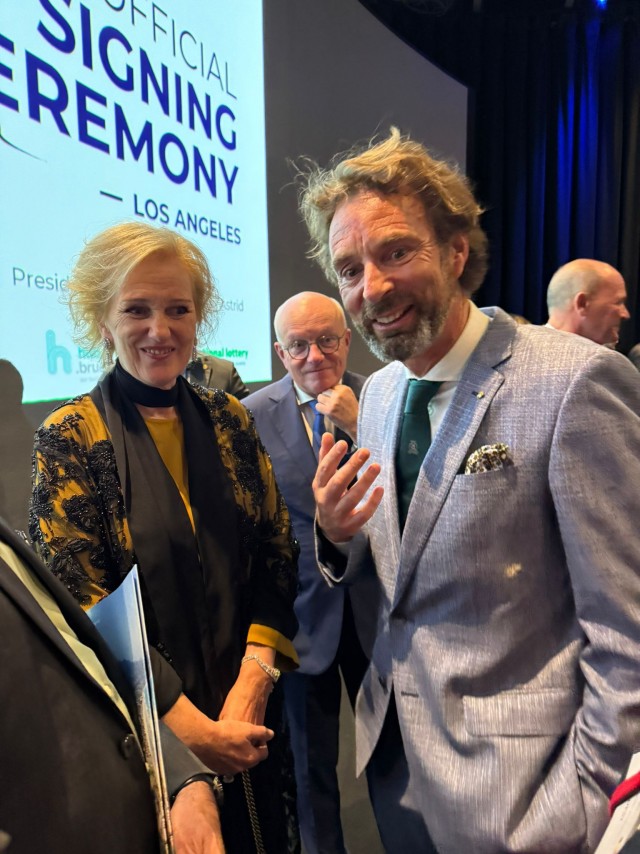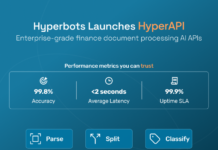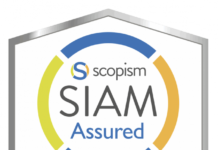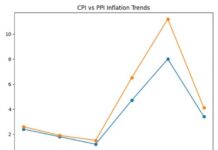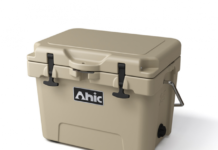(Isstories Editorial):- Los Angeles, California Oct 24, 2025 (Issuewire.com) – During the Belgian Economic Mission to the West Coast of the United States, chaired by Her Royal Highness Princess Astrid of Belgium, a world first was signed: a groundbreaking collaboration between AxonJay, the Belgian deep-tech scale-up that applies AI for planetary intelligence, and the Deheyn Lab of the renowned Scripps Institution of Oceanography (UC San Diego).
The agreement, titled “The Invisible Microplastics: Making them Visible and Actionable to Address a Global Crisis,” marks the start of a new era in environmental science.
For the first time, AI and advanced microscopic imaging are being combined to make the spread of microplastics — the invisible threat in our oceans, air, soil, and bodies — visible, measurable, and predictable on a global scale.
More on Isstories:
- New Lesbian Memoir Launches Ahead of Valentine’s Day, Offering an Honest Look at Love After Heartbreak
- Curantis Solutions and WorldView Partner to Bring Faster, Clearer Workflows to Hospice and Palliative Care Teams
- Debut Fantasy Novel The Other Kind: The Rise by Yusuf Bhatti Explored.
- Bluecoin IoT Brings AI-Ready Facility Intelligence to FWM India Summit 2026
- Haris Vitalaki Presents Know No Studies: A Poetic Exploration of Freedom, Thought, and Inner Truth
Following the signing, Princess Astrid personally invited both parties to the Royal Palace, in recognition of this exceptional Belgian-American collaboration with global impact
From Invisible to Unmistakable
The Deheyn Lab is world-renowned for its fluorescence imaging technology, which makes microplastics and microfibers light up with unprecedented precision. AxonJay’s Self-Machine-Learning Platform, developed in Belgium, then enables the automatic analysis of massive amounts of microscopic data, identifying correlations and predicting behavioral patterns — real-time, worldwide, and autonomously.
Together, they are creating the first globally scalable standard for microplastic research.
What was once an invisible problem now becomes hard, visual, and policy-relevant data.
An Alliance with Global Ambition
The collaboration will run for at least five years and includes:
— Publishing at least ten joint scientific papers in leading journals;
— Joint participation at world fora such as Davos and COP, where AxonJay & Scripps will host a panel at the System Shifters Conference
— Creating an international network for plastic pollution research
— Co-fundraising with governments, foundations, and industries to scale this work globally.
Objective: to accelerate discovery, drive stronger policy, and help ecosystems recover — using data as a weapon against pollution.
Quotes
“This collaboration proves that Belgian deep tech can make a global difference. Thanks to our self-learning AI, scientists no longer need to manually count plastic particles — they can focus on the bigger questions: where do microplastics come from, how do they spread, and how can we contain them?”
— Jean-Philippe M.L. Schepens van Thiel, Founder & CEO, AxonJay
“Solving a problem starts by seeing it clearly. With this alliance, we can literally see what remained invisible — awareness changes everything.”
— Dr. Dimitri Deheyn, Principal Investigator, Scripps Institution of Oceanography
A World First with a Belgian Stamp
What began as a meeting during an economic mission has evolved into a boundary-pushing partnership that unites science, technology, and royal vision. A symbolic moment in which Belgium, through AxonJay, reinforces its innovative power and ecological mission on the world stage.
To measure is to know — and the beginning of all change.
About AxonJay
AxonJay.ai is a Belgian deep-tech company headquartered in Brussels, operating at the intersection of AI, data intelligence, and sustainable innovation.
AxonJay monitors more than 80% of all companies worldwide and predicts in real time who is ready to buy, upgrade, move, innovate, restructure, merge, or scale.
Every organization leaves behind digital traces.
AxonJay’s Self-Machine-Learning Platform processes over 50 billion datapoints daily, powered by hundreds of algorithms that turn one thing into another:
Raw data into actionable signals.
Questions:
+32 471 80 80 82 Jean-Philippe M.L. Schepens van Thiel
Tina Stroobandt +32 486 66 76 84
This article was originally published by IssueWire. Read the original article here.

